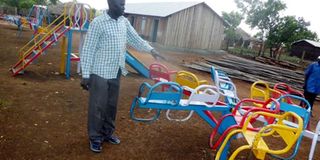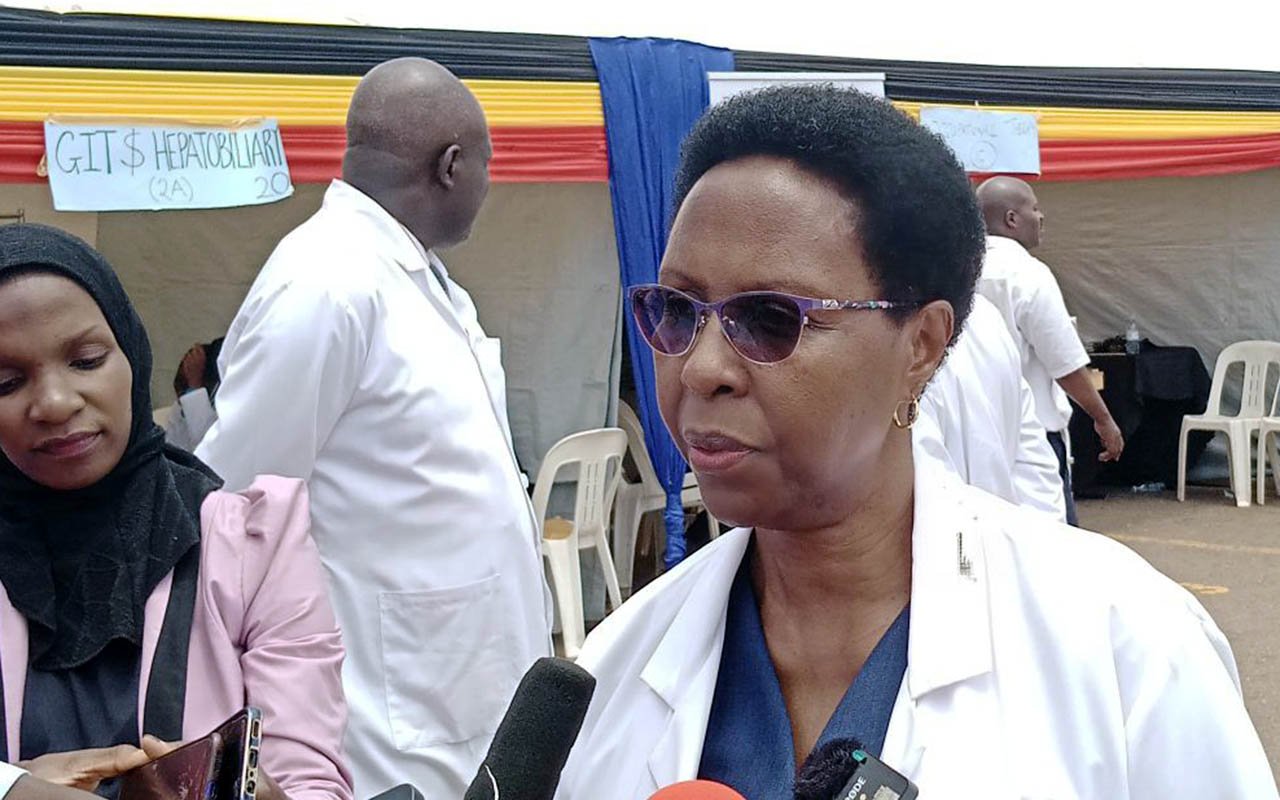Giving refugee children education

Alex William Luburi at the play area for the nursery section of Royal School International. Photo by Lominda Afedraru
What you need to know:
- Part of the school land has been paddocked to rear more than 200 goats as an income-generating initiative for children who lack fees.
- At the camp, the United Nations High Commissioner for Refugees (UNHCR) appointed him secretary for education with a task to make sure refugee children were enrolled in school.
All is not lost for refugee children from South Sudan living in camps in Arua District. Alex William Luburi, 55, a refugee in Ufua III Lurujo village in Rhino camp, Arua District, has set up a nursery and primary school to make it easy for them to access education.
Despite being a graduate in Business Administration, Luburi says he has experience in teaching. “I volunteered to teach children at Nakasero Primary School in Kampala while pursuing my first degree at Ndejje University in 1996.”
His passion in teaching grew stronger when Prof Solomon Wakabi from Ndejje started Fairland University in Jinja in 2002, and made him registrar. It is then that Luburi got the opportunity to pursue his Master’s degree in Education and graduated from Uganda Christian University, Mukono in 2010.
Shambles
Lubiri says he worked in Fairland until 2005 when the situation in south Sudan normalised and he returned to his country.
He, however, found the education sector back home in a pathetic state and set up a nursery and primary school in Yei River State and later a secondary school and teacher training college.
“I started the school with financial support from my wife since she had been working with Olam International, an NGO in Juba. The school had progressed and it comprised of four compasses. Parents were always willing to give financial support and a few NGO’s came on board,” he says.
But all this came crumbling down last year when the security situation in South Sudan worsened and he had to flee again. In July 2016, Luburi left South Sudan for Koboko with his family as refugees and settled in Ufua III refugee camp in September 2016.
At the camp, the United Nations High Commissioner for Refugees (UNHCR) appointed him secretary for education with a task to make sure refugee children were enrolled in school.
Dealing with numbers
The two schools in the village became overwhelmed by numbers and Luburi was prompted to set up his own.
The school, Royal School International, is housed on a 12-acre piece of land he negotiated from the natives with an agreement to pay $200 about (about Shs720, 000) annually, as rent.
Currently, there are 110 children in the nursery school and more than 80 in the primary section. They pay Shs40,000 and Shs45,000 per term including school uniforms. But those who cannot afford it are still allowed to continue with their studies.
There are 13 teachers at the school, five of which are Ugandan. Luburi says so far, his family has invested Shs68 million in setting up the schools including setting up a wholesale shop and carpentry workshop meant to generate money to run the school.
His major concern is that refugee children from South Sudan continue with their studies and can return to where they had left off when the situation normalises.
Part of the school land has been paddocked to rear more than 200 goats as an income-generating initiative for children who lack fees.
What they say about luburi
“I have known Luburi since he started the nursery school section early this year. I know him as someone with passion for children who wants to see them go to school instead of loitering in the camp.”
Dorcus Avako, nursery teacher at the school
“I first met Luburi in Yei in 2011, when I left Arua in search of a job in South Sudan. I know him as an educationist willing to offer his service to school goers. He loves people from Uganda because he spent his time studying in Uganda.”
Job Candia, head teacher of Royal School International
“Lubiri has challenged the government of Uganda which is responsible for providing education facilities to children. The nursery school is the first of its kind in Lurujo village.”
Jenah Tome, deputy refugee desk officer .



